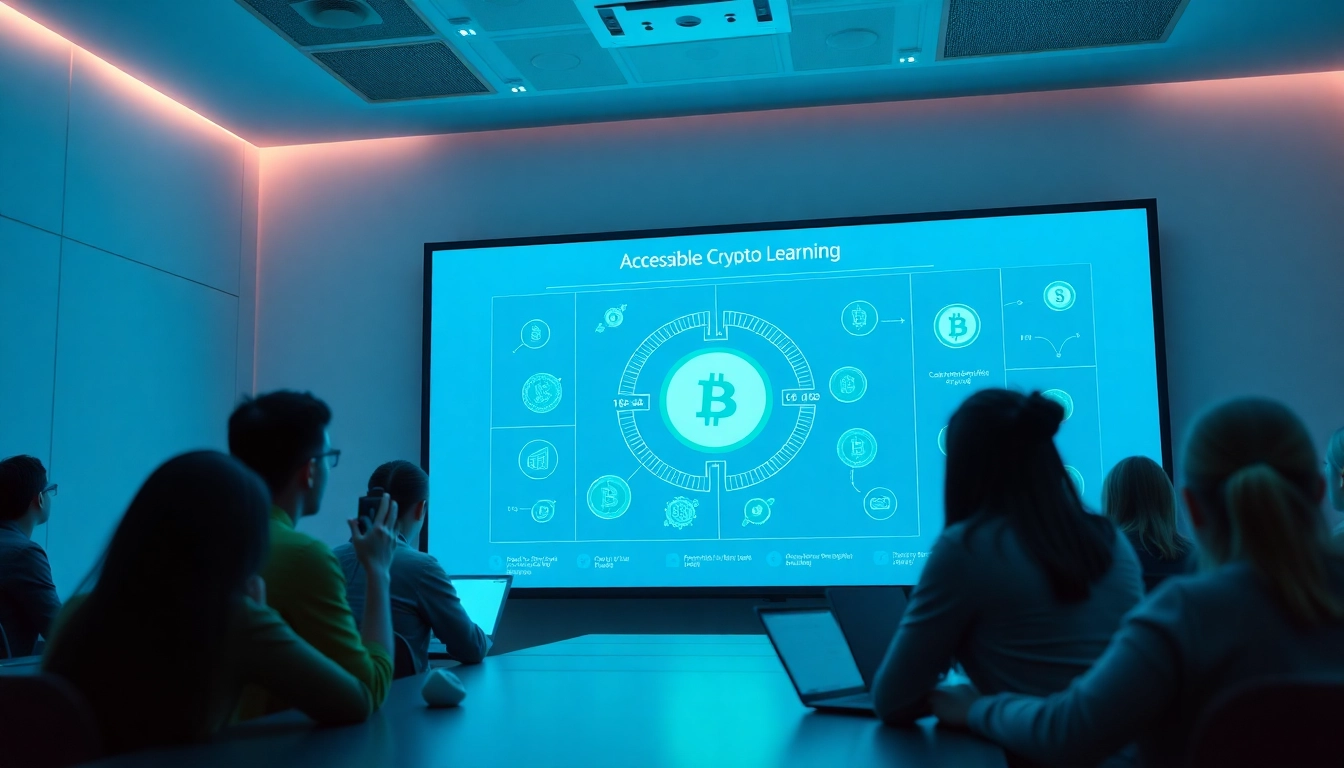Fundamentals of Crypto Learning for Beginners
Understanding Cryptocurrency Basics
Cryptocurrencies have revolutionized the way we perceive and conduct financial transactions. At their core, cryptocurrencies are digital or virtual currencies secured by cryptography, making them resistant to counterfeiting and fraud. The most well-known example is Bitcoin, which introduced the concept of decentralized digital currency. Other prominent cryptocurrencies include Ethereum, Ripple (XRP), and Litecoin, each serving different purposes within the blockchain ecosystem.
To start your crypto learning, it is essential to understand the foundational concepts such as blockchain technology, distributed ledgers, and cryptographic security. The blockchain acts as a transparent, immutable ledger of transactions maintained across a network of computers, eliminating the need for centralized authorities. This decentralization is the key to many advantages offered by cryptocurrencies, including censorship resistance, transparency, and enhanced security.
Investing in cryptocurrencies requires grasping fundamental terms such as wallets (digital accounts used for storing crypto assets), private and public keys, and transaction mechanics. Platforms like Coinbase and Fidelity offer extensive beginner resources—covering topics from types of cryptocurrencies to how to securely store your assets—that are invaluable as starting points in crypto learning.
Key Blockchain Technologies Simplified
Blockchain technology underlies all cryptocurrencies and plays a crucial role in shaping their functionalities. Essentially, a blockchain is a chain of blocks, each containing a batch of transactions that are cryptographically linked and verified by consensus mechanisms such as Proof of Work or Proof of Stake.
Popular blockchain protocols like Ethereum facilitate not only transactions but also smart contracts—self-executing contracts with terms encoded directly into code. These smart contracts enable decentralized applications (dApps) and decentralized finance (DeFi) platforms, expanding the scope of crypto beyond simple currency transactions.
Understanding the distinctions between different blockchain architectures, consensus algorithms, and scalability solutions (like Layer 2 protocols) is vital for those advancing in crypto learning. For example, exploring how Ethereum 2.0 aims to improve scalability and energy efficiency can significantly enhance your practical knowledge and investment acumen.
Common Challenges in Crypto Learning and How to Overcome Them
Crypto learning can be daunting due to the rapid pace of technological innovation, complex jargon, and security risks. Beginners often face challenges such as information overload, fear of scams, and difficulties understanding technical concepts. To overcome these obstacles, adopt a strategic approach:
- Start with reputable resources: platforms like Coinbase Learn, Binance Academy, and Coursera offer structured courses and tutorials designed for beginners.
- Build gradually: focus on mastering basic concepts before delving into advanced topics like DeFi or tokenomics.
- Practice safely: use testnets or demo accounts to simulate transactions without risking real assets.
- Engage with communities: participate in forums, attend webinars, and follow industry insiders to stay updated and clarify doubts.
Addressing these challenges with curated learning paths, interactive tools, and community support increases your confidence and competence in crypto learning journeys.
Developing Effective Crypto Learning Habits
Curated Resources and Educational Platforms
The cornerstone of effective crypto learning is access to curated, high-quality educational resources. Besides the basic platforms, explore specialized courses on blockchain development, crypto trading, and security practices. Websites like Binance Academy and Udemy feature comprehensive tutorials suitable for various skill levels.
Additionally, following industry updates from official regulatory bodies—such as Gemini’s recent acquisition of a MiCA license or the Fed’s advocacy for DeFi—can deepen your understanding of the evolving legal landscape that influences crypto markets. Regularly consuming content from trusted sources ensures you stay informed and adapt to regulatory developments.
Structuring Your Learning Path
Creating a structured learning plan enhances retention and practical application. Begin with foundational topics such as what cryptocurrencies are and how blockchains operate. Progress to understanding wallet security, trading basics, and market analysis. Incorporate consistent review sessions and real-world practice to solidify your knowledge.
For example, dedicating specific weekly time slots for courses, tutorials, and reading can yield better results than sporadic learning. Using tools like notes, flashcards, and progress tracking app can help measure your growth and identify areas needing reinforcement.
Utilizing Interactive Tools and Courses
Hands-on experience is vital. Interactive tools, such as simulation platforms and trading demos, bridge theoretical knowledge with real-world skills. Many educational platforms offer gamified learning modules—like quizzes, challenges, and virtual portfolios—that make the process engaging and effective.
Specialized courses from sources like Coursera or Udemy explain trading strategies, security best practices, and portfolio management through practical assignments and case studies. These resources equip learners with skills to interpret market trends and make informed decisions, enhancing their crypto learning journey.
Advanced Concepts and Practical Skills in Crypto
Security Best Practices for Crypto Beginners
Security is paramount in crypto. Rookie mistakes like sharing private keys or falling for scams can lead to significant asset loss. Implementing strong security practices involves using hardware wallets, enabling two-factor authentication, and verifying the legitimacy of platforms and links.
Stay vigilant against phishing attacks, keep software up-to-date, and learn about emerging threats such as SIM swapping or social engineering. The latest regulatory updates, like Gemini’s MiCA license, underscore the importance of compliant practices in the evolving crypto environment.
Analyzing Market Trends and Data
Data analysis skills empower you to identify market trends and develop strategic investment plans. Learning how to read charts, interpret blockchain data, and utilize analytics tools enhances your understanding of price movements and potential opportunities.
Many platforms provide free analysis tools and tutorials to help beginners develop these skills. Tracking indicators such as Moving Averages, RSI, and volume can improve decision-making accuracy in volatile markets.
Building Your Portfolio and Investment Strategies
Constructing a diversified crypto portfolio involves understanding various token types, risk management, and long-term strategies. Beginners should study concepts like dollar-cost averaging, staking, and asset allocation to optimize returns and mitigate risks.
A prudent approach combines foundational knowledge, continuous learning, and disciplined execution. Regularly reviewing your investments, adapting to market changes, and staying updated on regulatory shifts are keys to sustained success in crypto investing.
Leveraging Community for Better Crypto Learning
Joining Online Forums and Social Groups
Participation in online communities accelerates learning by exposing you to diverse perspectives and shared experiences. Platforms like Reddit’s r/CryptoCurrency and specialized Telegram channels offer invaluable insights and real-time discussions about market developments and security alerts.
Utilizing Mentorship and Peer Support
Finding mentors or joining study groups can significantly boost your understanding. Many community members and industry experts willingly share knowledge, troubleshoot issues, and provide practical advice—especially useful when dealing with complex topics like DeFi or smart contract auditing.
Attending Webinars and Live Sessions
Live webinars and industry conferences allow direct interaction with thought leaders and peers. These sessions often include Q&A segments and demonstrations that deepen practical understanding of current trends, regulatory changes, and innovative projects.
Measuring Your Progress and Staying Updated
Tracking Learning Milestones
Developing measurable goals—like completing specific courses, mastering security protocols, or executing simulated trades—helps track your development. Use journaling or digital trackers to monitor progress and identify areas for improvement.
Staying Informed on Regulatory Changes
Regulatory landscapes are constantly evolving, influencing market dynamics and compliance requirements. Subscribing to industry newsletters, following official statements, and participating in discussions about policies—such as the recent issuance of the MiCA license to Gemini—ensure you stay compliant and informed.
Adapting to the Rapid Evolving Crypto Environment
Flexibility and continuous learning are vital. The rapid innovation in DeFi, NFTs, Layer 2 solutions, and regulatory frameworks demands an adaptive mindset. Regularly updating your knowledge base, experimenting with new tools, and embracing emerging technologies ensure your crypto learning remains relevant and effective.


